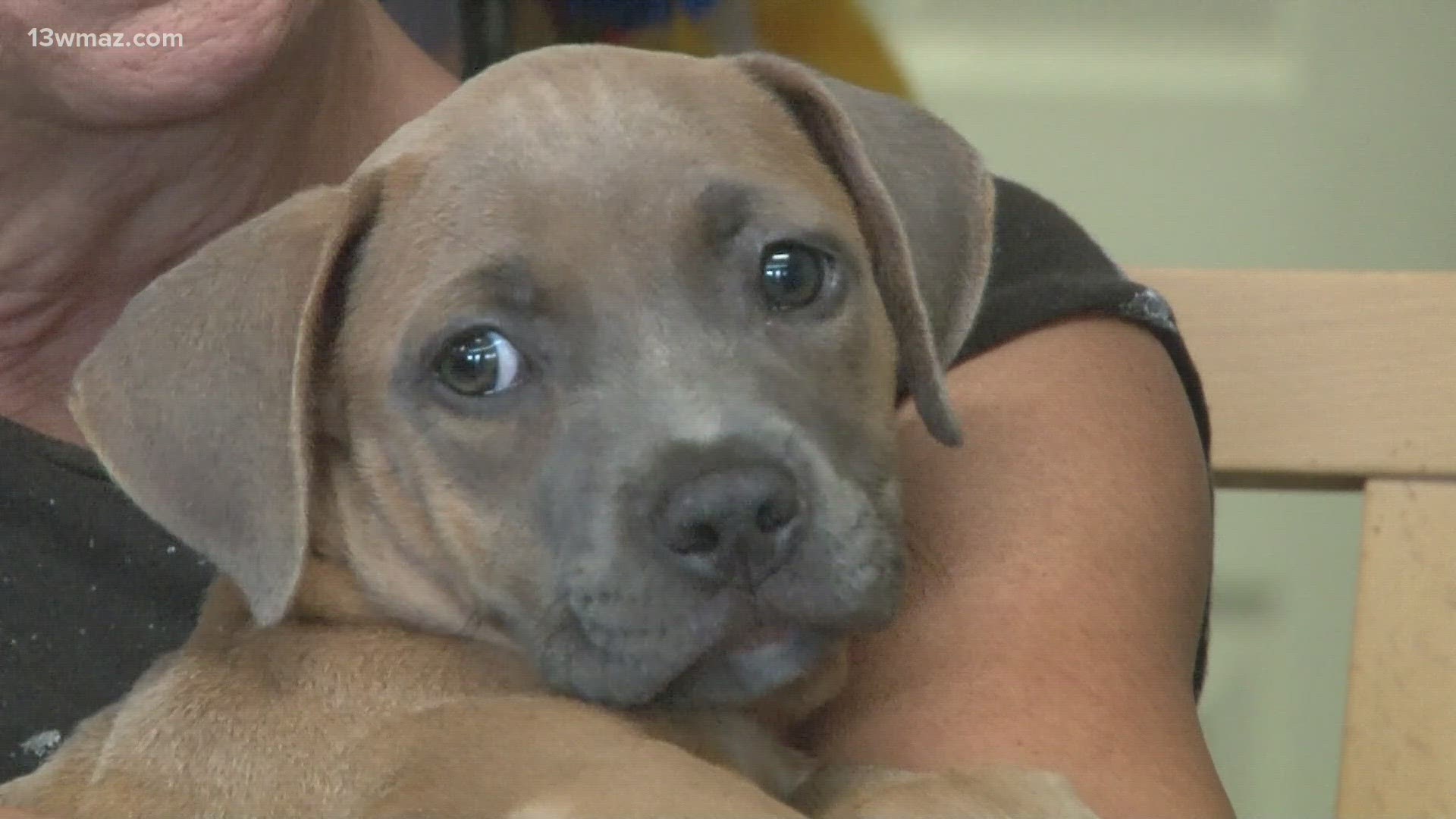BYRON, Ga. — If your dog's been under the weather lately, you should probably get them checked out.
An unknown respiratory illness has spread to dogs in 14 states, including Georgia, according to the American Veterinary Medical Association.
It reported the exact transmission of the disease remains unknown, but doctors say the sickness is likely contagious and can spread the same way a flu does.
Dr. John Hutchens said there is no need to panic or get your dogs' COVID-masks as long as you reach out to your veterinarian as soon as you notice symptoms.
It is not unusual for dogs to get sick during flu season, like humans, Dr. Hutchens said.
"Very similar to kids in a daycare, or kids at school," he said. "Everybody's healthy until they all get clumped together in an enclosed area, and then what happens? One person has it then a hundred people have it."
His practice, Hands of Hope Animal Hospital, has seen a handful of sick dogs with respiratory infections. Whether they are ill with the mysterious disease spreading is unknown to them.
"Don't think you can look at an animal coughing and think they have what could possibly be the worst-case scenario," Hutchens elaborated. "It's vital for a veterinarian to treat every patient, also known as your pet, individually and base treatment on their needs."
According to the AVMA, common symptoms of the respiratory illness in dogs include:
- Chronic mild-moderate tracheobronchitis − a sudden or long-term inflammation of the trachea and bronchial airways, according to Merck Veterinary Manual − lasting 6-8 weeks that is barely or nonresponsive to antibiotics.
- Chronic pneumonia is not responsive to antibiotics.
- Acute pneumonia that quickly turns severe sometimes in as little as 24-36 hours.
- Difficulty or rapid breathing, wheezing, dehydration, fever, nasal or eye discharge, weight loss, loss of appetite and lethargy.
Treatment can include:
- Oxygen therapy.
- Use of a nebulizer (a drug delivery device used to administer medication in the form of a mist inhaled into the dog's lungs).
- Antibiotics (to treat secondary infection).
- Measures to ensure the dog has "adequate nutrition" and hydration (including the use of intravenous fluids).
- Make sure your dog has been fully vaccinated - especially for kennel cough. While the existing vaccines may not specifically target the unknown infection, maintaining overall health through routine vaccinations helps support a dog’s immune system.
- Avoid dog parks, pet stores and grooming facilities with your canine companion, if possible.
- Be mindful of boarding. It is recommended to avoid boarding your dog "unless absolutely necessary. Caution is advised rather than worry. There is a lot of interstate mobility among people and their pets and this may facilitate the transmission of the disease, as it appears to be highly contagious."
- If your dog shows any signs of respiratory issues, including the symptoms listed above, contact your vet and keep your pet isolated from other animals until the matter is resolved.
Respiratory infections in dogs can appear in a number of ways, such as pneumonia, allergies, a rattle in the chest and heart disease according to Hutchens.
"Very similar to the human side of precautions we'd take," Hutchens said. "If you're running a fever, you don't go out into the general public. If your dog is sick, do not expose them to other dogs to potentially transmit what your dog has.
Dog parents like Lindsey Wessel have concerns about their babies, like her 1-year-old Gus.
"I've seen things on TikTok about how people's dogs are getting really sick and they're at the vet, and they can't breathe," she recalled seeing previous reports.
Wessel said she always stays aware of other dogs' behavior when she takes Gus to the dog park.
However, she said, "I'm not too worried about it here in Macon, because it's kinda spread out."
As people spend time away during the holidays, Dr. Hutchens said there's no need for panic or pandemonium if you take precautions before boarding your furry friend.
He said it's important for responsible pet owners to reach out ahead of boarding their pet to the boarding facility and ask for information about the hygine of the area, such as disinfectants they use and how they handle illnesses there.
"When it comes to well patients, sick patients, spacing, ventilation," Hutchens said. "Those kinds of precautions will help to prevent not only this new type of respiratory complex, but also kennel cough and flu and some other illnesses."

